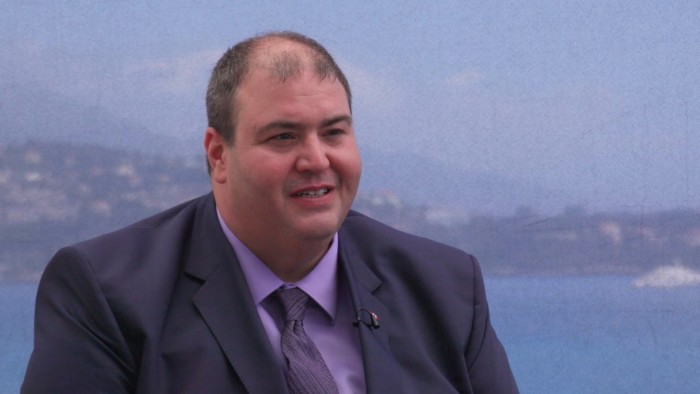Blog: trade wars, dressing down and cancer cures on agenda

Roula Khalaf, Editor of the FT, selects her favourite stories in this weekly newsletter.
We may be a long way from Trump Towers but Monaco is a-buzz with talk of trade wars and protectionism. This morning I met last year’s winner of the EY World Entrepreneur of the Year award, Murad Al-Katib (pictured above) president and chief executive of AGT Food and Ingredients, who told me in no uncertain terms how he’s worried about the upheaval of the current world order.
“I’m a bit concerned that we’re unravelling 40 years of progress in four months,” says the voluble Canadian. “We’re moving away from free trade and economic integration to protectionism.”
AGT Food, which exports vegetable-based protein including lentils, peas, beans and chickpeas to 120 countries, is trying to address the biggest challenge facing the food industry: surging demand. “From a business perspective I view that as an opportunity but it scares the hell out of me,” says Mr Al-Katib, describing how food shortages drive social unrest. “When a baby is hungry it cries. When a 19-year-old man is unemployed and hungry he protests. Civil obedience is tied to food availability. This is the dangerous game that governments are playing today.”
AGT Food is reshaping its business to guard against creeping protectionism by expanding its domestic production points around the world. Last year, for example, the Indian government put a 50 per cent tariff on pea imports, and so now the group is investing in local produce and distribution in India, and in other core markets like Turkey and the US. So is this current situation permanent, I ask Mr Al-Katib? He strikes an optimistic tone. “Consumers will drive back the pendulum because they will not accept higher prices for their staple products,” he says. “Food inflation defeats governments around the world.”
Last night, at the Opéra de Monte-Carlo, where in the splendour of the opera house — designed by Charles Garnier, the architect of the famous Paris Opera House — the winners and finalists in the EY World Entrepreneur of the Year event were honoured on stage.
All were smartly suited and booted. All, that is, apart from France’s entrepreneur-du-jour, Octave Klaba. The founder of the cloud computing company, OVH, drew cheers when he arrived on stage looking, let’s say, a bit more low key than the others, in his favourite “innovation is freedom” T-shirt and red trousers. There was much speculation over whether Mr Klaba will dust off a tuxedo for the black tie awards dinner tomorrow night.
Yesterday evening also saw the announcement of the winner of the inaugural EY Entrepreneur of the Year Alumni Social Impact Award, which this year was awarded to Aussie philanthropist Andrew Forrest.
Twiggy, as he is known, grew up on a remote cattle station in Australia and made billions of dollars in the mining industry with his Fortescue Metals Group. Now he is actively involved with a variety of philanthropic projects, one of which is the fight against brain cancer.
Mr Forrest gave a powerful speech about how data-sharing may just hold the key to a cure of this “previously unchallenged monster”. He explains: “It’s not just the capital. It’s not just the science. It’s the one missing link that binds it all together — patient data.”
Patient data are this “missing ingredient” in the race to find a cure for cancer, he believes. Crucially, provision of this vital information is in the hands of the patients themselves. “Cancer patients hold the key to cures through their own data,” says Twiggy.
He is working with governments, hospitals and philanthropists around the world to establish the Universal Cancer Databank, an institution that will allow patients to contribute their data to a database that is 100 per cent global, philanthropic and anonymised. The idea is to make this data easily and freely accessible to all qualified researchers and physicians around the world to aid their research.
Twiggy ended his speech with a rousing call to arms urging the audience to encourage their countries and communities collaborate with his project. We are constantly hearing horror stories about data-sharing, the Facebook/Cambridge Analytica scandal being just the latest example. It was refreshing to be reminded about how data can be harnessed as a force for good.
Comments